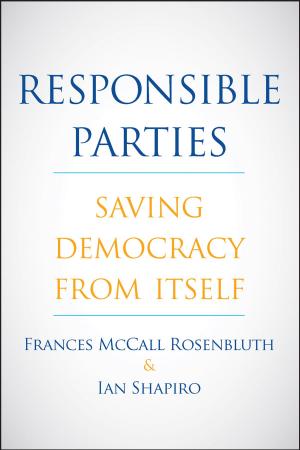Underdog Politics
The Minority Party in the U.S. House of Representatives
Nonfiction, Social & Cultural Studies, Political Science, Government, Political Parties| Author: | Matthew N. Green | ISBN: | 9780300182262 |
| Publisher: | Yale University Press | Publication: | January 28, 2015 |
| Imprint: | Yale University Press | Language: | English |
| Author: | Matthew N. Green |
| ISBN: | 9780300182262 |
| Publisher: | Yale University Press |
| Publication: | January 28, 2015 |
| Imprint: | Yale University Press |
| Language: | English |
In the first comprehensive study of the subject in decades, political scholar Matthew Green disputes the conventional belief that the minority party in the U.S. House of Representatives is an unimportant political player. Examining the record of the House minority party from 1970 to the present, and drawing from a wide range of quantitative and qualitative data, Green shows how and why the minority seeks to influence legislative and political outcomes and demonstrates that the party’s efforts can succeed. The result is a fascinating appreciation of what the House minority can do and why it does it, providing readers with new insights into the workings of this famously contentious legislative chamber.
In the first comprehensive study of the subject in decades, political scholar Matthew Green disputes the conventional belief that the minority party in the U.S. House of Representatives is an unimportant political player. Examining the record of the House minority party from 1970 to the present, and drawing from a wide range of quantitative and qualitative data, Green shows how and why the minority seeks to influence legislative and political outcomes and demonstrates that the party’s efforts can succeed. The result is a fascinating appreciation of what the House minority can do and why it does it, providing readers with new insights into the workings of this famously contentious legislative chamber.















